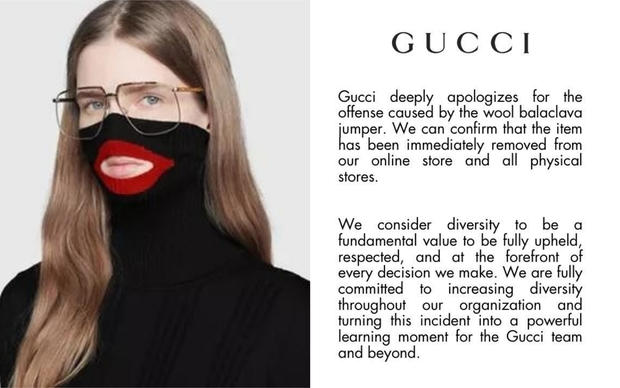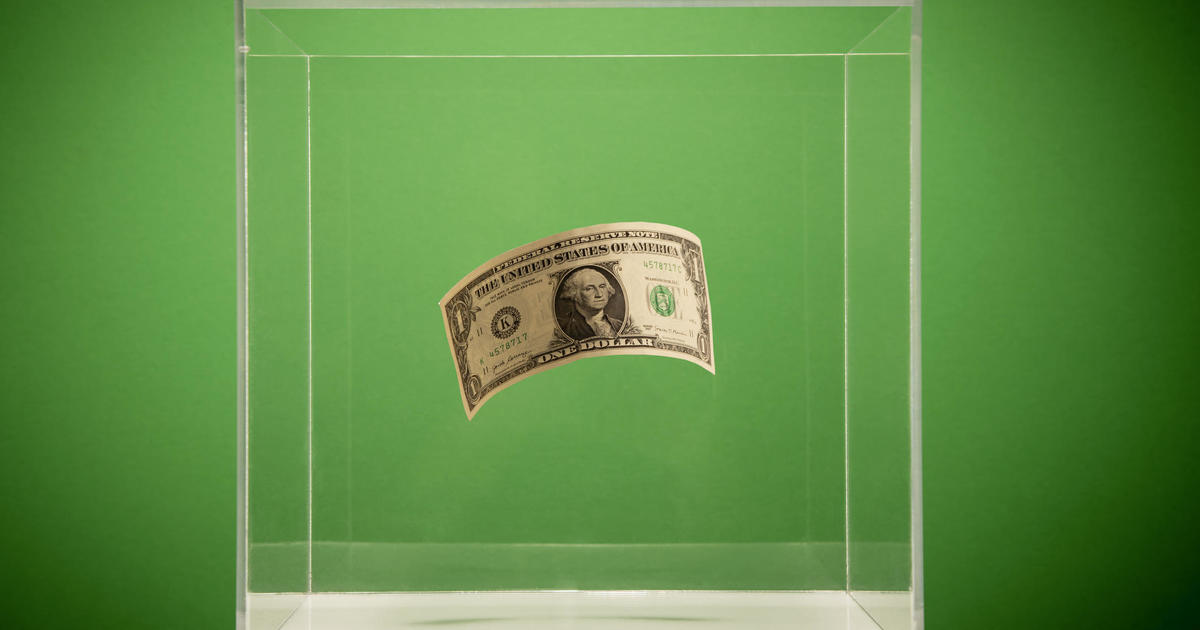Gucci and Prada aim for outrageousness, instead they get outrage
High-end fashion designers live or die by their cultural relevance, requiring they pay radar-like attention to changing consumer tastes. Yet in a string of recent incidents, prominent brands have provoked outrage with racist designs, raising a simple question: What on earth were they thinking?
Most recently, Gucci pulled a wool balaclava sweater from its online and physical stores and apologized to the public for the design, which many social media users said reminded them of "blackface." The $890 item featured an oversized neck with a cutout for the mouth outlined in red, imitating a pair of lips. A screenshot from Gucci's website shows it described as a "runway showpiece."
Last year, Prada came under fire for displaying figurines that evoked blackface imagery, while Dolce & Gabbana was forced to cancel a China fashion show after Stefano Gabbana, one half of the design duo, made insulting comments about Chinese people on social media.
Epic flail
These misfires suggest that some luxury brands are losing touch with the public, experts said, a commercial faux pas at a time consumers increasingly want products to which they feel personally connected.
"People want products that mean something, that are going to last and that express their values," said branding consultant Kate Newlin. She described Gucci's sweater snafu as "a desperate quest for relevance in culture."
"Nobody needs to pay that much for a sweater, so they are flailing around," she added.
Out of touch with consumers
While such design firms can't be blamed for being provocative — fashion is, after all, about taking risks and sometimes skirting the edge of good taste — these incidents make them appear woefully out of touch with the national dialogue on race and other topics.
"I think these were aesthetic attempts to be outrageous. That's what they try to do — they try to be outrageous, to be noticed," said Larry Chiagouris, professor of marketing at Pace University. "It's one thing to conceptually want to be outrageous. It's another thing to execute it in a way that a lot of people take offense."
But how can companies appear so oblivious to the racial undertones in their products? In part, the problem stems from some designers' disconnect from the public, according to Chiagouris — a public not shy about using social media to broadcast their displeasure about a company's transgressions.
Fashion designers also may work in what amount to creative bubbles. They may be experts on clothes, in other words, but less savvy about their clothes' cultural meanings.
"The people at the top of these brands who make the fashion decisions as opposed to the communications decisions don't usually don't think it through," Chiagouris said. "They may be very avant-garde and at the leading edge of new fashion designs, but they don't pay as close attention to the very important consideration of what is the message being shared with people."
"When they finally wake up one day and realize there is this conversation going on, they get into it, but it's usually too late to be able to make a difference."
And when companies mess up, the reaction can be swift — and severe. Prominent celebrities, including director Spike Lee, have vowed to boycott Gucci and Prada. Lee said on Instagram that brands need to have black designers in the room when creative decisions are made to avoid future gaffes.





